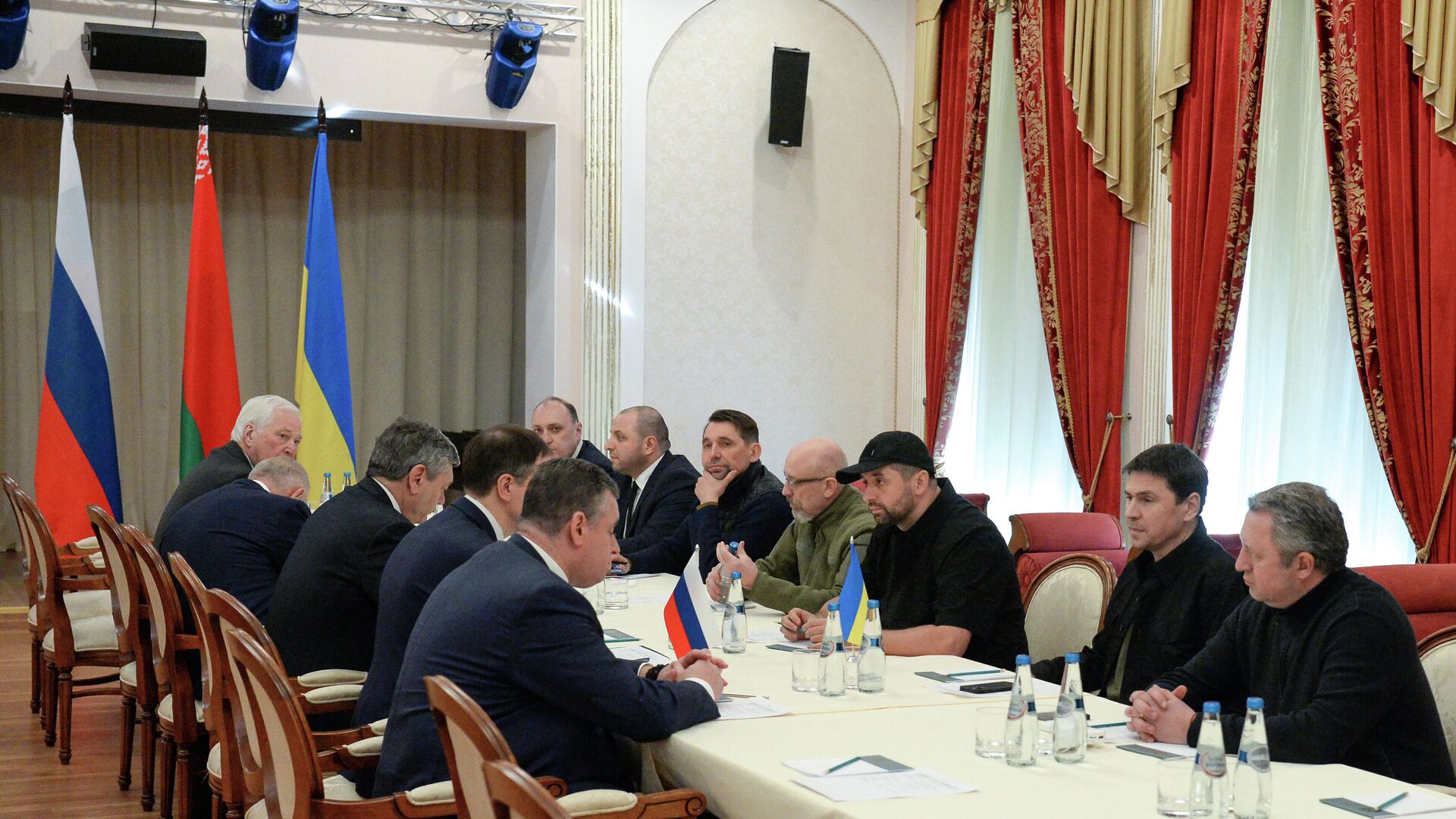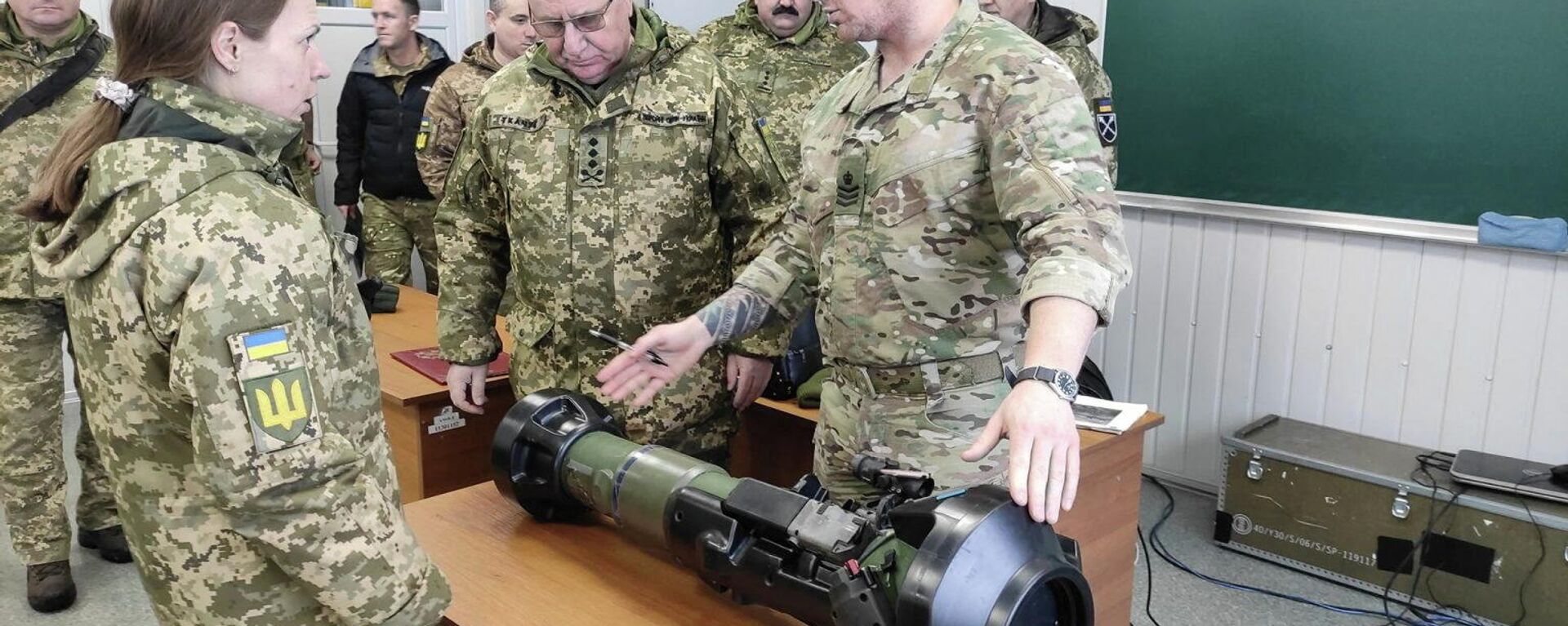Points of Contact for Common Positions Found at Russia-Ukraine Talks, Russian Delegation Head Says
16:29 GMT 28.02.2022 (Updated: 22:00 GMT 28.02.2022)

© Sputnik / Александр Кряжев
/ Subscribe
Russian and Ukrainian officials agreed to meet in Gomel region, Belarus on Monday for talks aimed at halting the fighting in Ukraine and resolving the crisis between Moscow and Kiev.
Russian and Ukrainian negotiators have found some points of contact from which common positions can be built on, Vladimir Medinsky, special assistant to President Putin and head of the Russian delegation, has told reporters.
"Talks with the Ukrainian side which lasted about 5 hours have just wrapped up. We discussed in detail all the items on the agenda and found some common points on which we predict common positions can be found," the official said.
First and foremost, this includes agreement on the need to continue talks. "The next meeting will take place in the coming days on the Polish-Belarusian border. There is a corresponding agreement on this," Medinsky said. "Until then, each delegation - the leadership of each delegations will consult on each of the negotiating positions with the leadership of their respective country," he noted.
Mikhail Podolyak, advisor to the head of Ukrainian President's Office, confirmed that a second round of talks was discussed.
"The two sides identified a number of priority topics on which certain decisions have been outlined. In order for them to have an opportunity to be implemented...the parties are leaving for consultations in their respective capitals. The possibility of a second round of negotiations in the near future during which these topics will receive concrete, practical development was discussed," Podolyak said.
Two Sides 'Heard Each Other'
Leonid Slutsky, another member of the Russian delegation and the head of the Duma's Committee on Foreign Affairs, said that the two sides had found "a number of important points on which progress can be reached."
"The Ukrainian delegation was ready to listen and participate in the most detailed discussion of the essence of the issues on today's agenda," Slutsky added. "The main result is that the negotiations themselves took place, that the parties heard each other," the lawmaker said.
Belarusian Minister of Foreign Affairs Vladimir Makei promised his country was ready to continue to do its part in helping to resolve the crisis between Russia and Ukraine. Makei said organizing Monday's meeting was a difficult but necessary task, and said the next round of talks were set to take place in a "couple of days."
Monday's talks, which were also attended by Russian Ambassador to Belarus Boris Gryzlov, Ukrainian Defence Minister Oleksiy Reznikov, Ukrainian Deputy Foreign Minister Mykola Tochitsky and others, were held after days of waffling by Kiev.
Belarusian President Alexander Lukashenko repeatedly stressed his readiness to facilitate Moscow and Kiev with a negotiating platform. On Saturday, he warned that external forces were encouraging and "pushing" Kiev to keep fighting, and that the longer the conflict takes place, the more of a chance there is that it will be turned into a foreign-backed "meat grinder" for both nations.
The United States and the European Union have agreed to provide with nearly $1 billion in additional military assistance, with EU foreign affairs chief Josep Borrell saying Monday that this would include "high-calibre arms, anti-tank [systems], all kinds of equipment," plus fuel for Ukrainian tanks and aircraft. Borrell expressed satisfaction over reports of fighting on the ground, suggesting that Russia was "paying a high toll on number of casualties."
Russia launched a military operation in Ukraine last Thursday, coming to the defence of its Donetsk and Lugansk Republic allies after weeks of escalating Ukrainian mortar, artillery and sniper attacks in the Donbass conflict zone. The Donbass broke off from Ukraine in 2014 in the wake of a Western-backed coup in Kiev in 2014, sparking a civil conflict which has claimed over 14,000 lives and forced over 2.5 million people to flee their homes, about 1 million of them to Russia.


